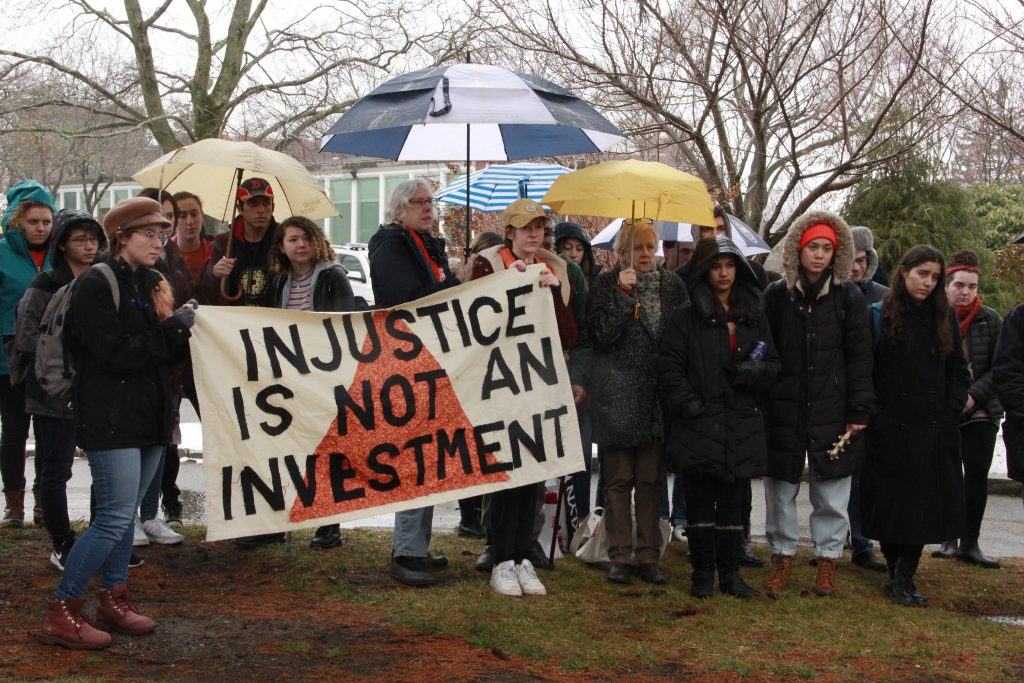Members of the community gathered in the rain to protest the university’s investments in fossil fuels on Feb. 13 at the Peace Circle outside of Usdan. The protest, organized by Brandeis Climate Justice (BCJ), heard from professors and representatives from student groups including Dissenters and Sunrise Waltham.
“It is unacceptable that we are still profiting off of these immoral and destructive industries,” said Sydney Carim ’23.
BCJ’s official demands, read by Carim, were that the university divest from all direct holdings of fossil fuels immediately, be transparent in decision-making and the endowment portfolio, reinvest the money in a “just and sustainable manner” and divest from all indirect holdings in fossil fuels by 2022, the deadline that Board of Trustees gave in 2018 and the 10-year anniversary of BCJ, according to Carim.
“I’ve been here a long time and the trustees are a hard group to crack. The trustees, as trustees at many places do, claim that their obligation is to maximize return on the university’s investments. There are two flaws in that logic: one is that there is just as much money to be made now on solar and wind than as coal, so that is not a good explanation. The other, and this is much more difficult, the trustees rightfully understand that if you apply an ethical standard to investments, where would you stop,” said Professor Shai Feldman. “There are questions here about capitalism and the nature of investment. If the point is to make as much money as you can, it doesn’t matter how you make it. So our task is to get across to them that the climate issue is like nothing else we’ve ever faced.”

Photo by Grace Zhou/The Hoot.
Vice President of Finance and Administration Stewart Uretsky was present at the end of the event and stood in the back as students chanted.
“Any attempt that we make on this campus to divest also needs to be made with dual efforts to divest from militarism, to divest from any other capitalist entities that aren’t in line with our values and with the end goal of abolishing these systems of settler colonialism and capitalism,” said Josh Benson ’23.
The university administration committed to partial divestment in 2018. The university said that its existing investments in fossil fuel private limited partnerships represented approximately 5 percent of the school’s endowment and would run with the funds’ typical life cycles.


